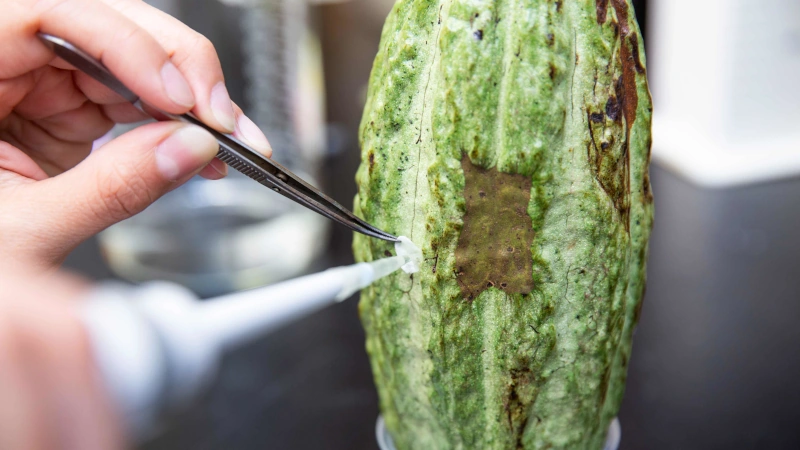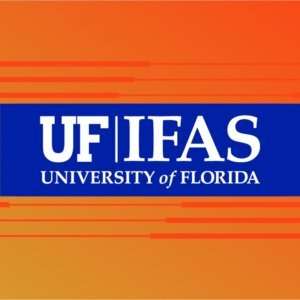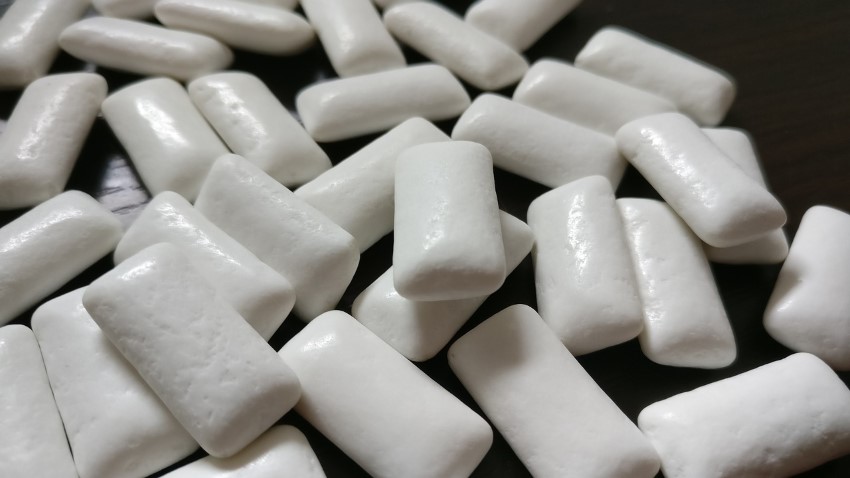As you nibble on a chocolate truffle or bite into a chocolate-dipped strawberry on Valentine’s Day, consider the elongated, ribbed pods of the cacao tree, which made that sweet treat possible. A group of UF/IFAS plant pathologists has partnered with the Mars confectionary company to safeguard those pods – and the precious beans nestled inside – from a devastating disease: black pod rot.
Black pod rot is a disease caused by species in the genus Phytophthora. Meaning “plant destroyer” in Greek, Phytophthora is infamous as including the pathogen that caused the Irish potato famine in the mid-19th century.
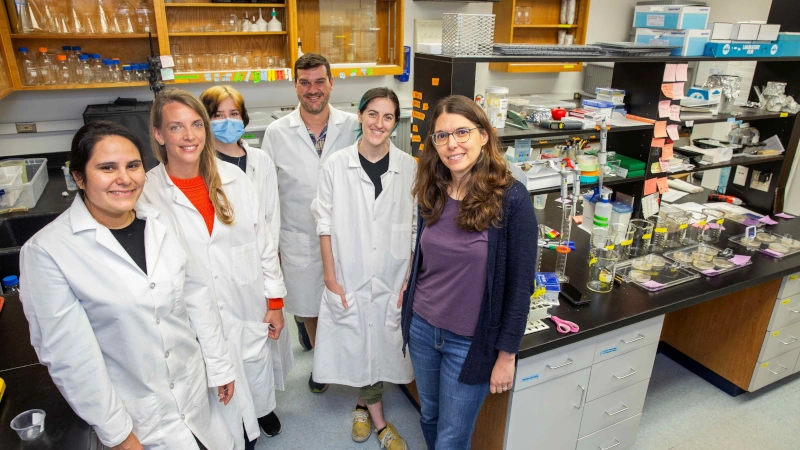
Members of the research team (L-R): Mariana Herrera Corzo, Ina Schlathoelter, Avril Rosano, Joshua Konkol, Sara Green and Erica Goss. Credit: Mariana Herrera Corzo
Phytophthora-infected cacao pods develop dark lesions, which eventually host white fluffy growth before the pods shrivel into a mummified, inedible state.
Phytophthora megakarya is an especially aggressive species responsible for destroying up to 80% of farmers’ cacao crops, said Mariana Herrera Corzo, a UF/IFAS doctoral student leading part of the project and working under the supervision of Erica Goss, professor, and Jeremy Brawner, courtesy faculty member, both in the plant pathology department.
“Nearly 70% of the global cacao production takes place in Africa, where black pod rot caused by Phytophthora megakarya is rampant,” Herrera Corzo said. “There, we have an epidemic.”
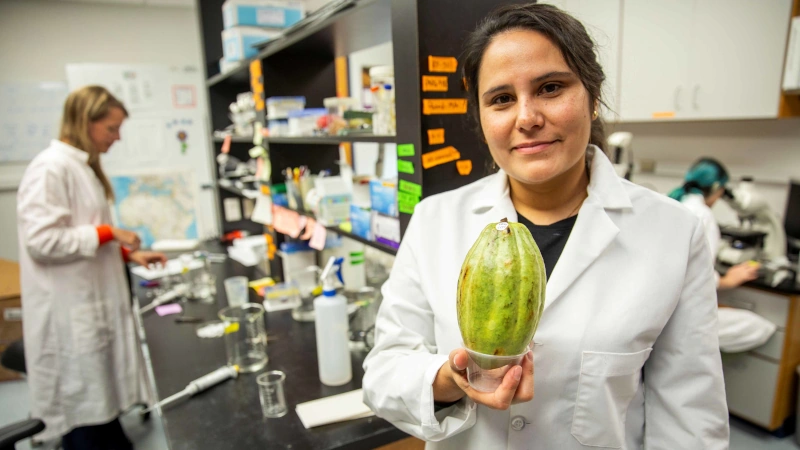
UF/IFAS doctoral student Mariana Herrera Corzo with a cacao pod. Credit: Mariana Herrera Corzo
Researchers are conducting preventive breeding to identify cacao plants resistant to Phytophthora species. The process starts in Costa Rica with the evaluation of cacao pods at the Tropical Agricultural Research and Higher Education Center, or CATIE. Mars provides funding for CATIE to ship cacao pods from the center’s germplasm collection to a UF/IFAS lab for inoculation with different Phytophthora species. After a few days, researchers measure the resulting lesions and combine that information with genetic sequencing data from cacao plants and Phytophthora species in prediction models.
The pathologists have examined at least 4,000 pods over the course of more than four years.
“We’re studying the genetics of the plants and the pathogens to develop a prediction model capable of revealing which plant materials are less susceptible to Phytophthora,” Herrera Corzo said.
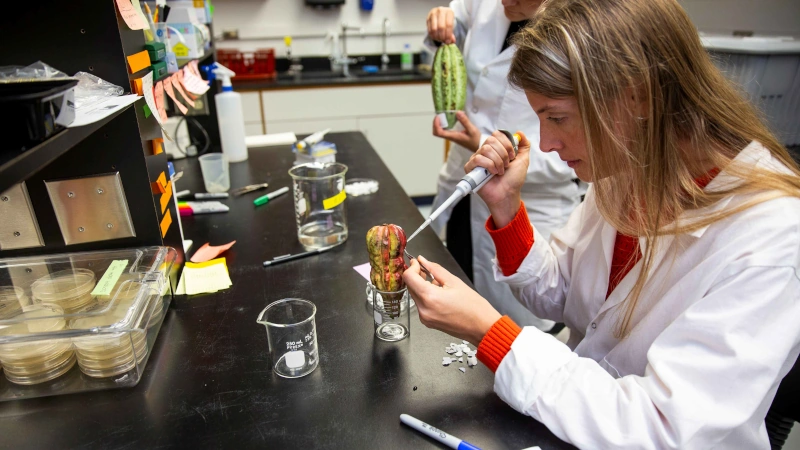
UF/IFAS postdoctoral researcher Ina Schlathoelter inoculates a cacao pod. Credit: Mariana Herrera Corzo
The team’s research is expected to conclude later this year with the publication of a formal study and the release of their prediction model, which will guide cacao breeders and farmers.
“I feel so committed to this project because I understand the impact that this information could have on small farmers,” Herrera Corzo said. “I’m really proud of what we’re accomplishing.”
The post UF/IFAS researchers work to prevent a disease threatening your favorite chocolate first appeared in the University of Florida Institute of Food and Agricultural Sciences News Blog.
Written by: Megan Winslow, Public Relations Specialist, UF/IFAS
Megan grew up in Gainesville and graduated from the University of Florida College of Journalism and Communications. She enjoys photography, swing dancing and classic rock music. She is a huge fan of Tom Petty.
The mission of the University of Florida Institute of Food and Agricultural Sciences (UF/IFAS) is to develop knowledge relevant to agricultural, human and natural resources and to make that knowledge available to sustain and enhance the quality of human life. With more than a dozen research facilities, 67 county Extension offices, and award-winning students and faculty in the UF College of Agricultural and Life Sciences, UF/IFAS brings science-based solutions to the state’s agricultural and natural resources industries, and all Florida residents.
